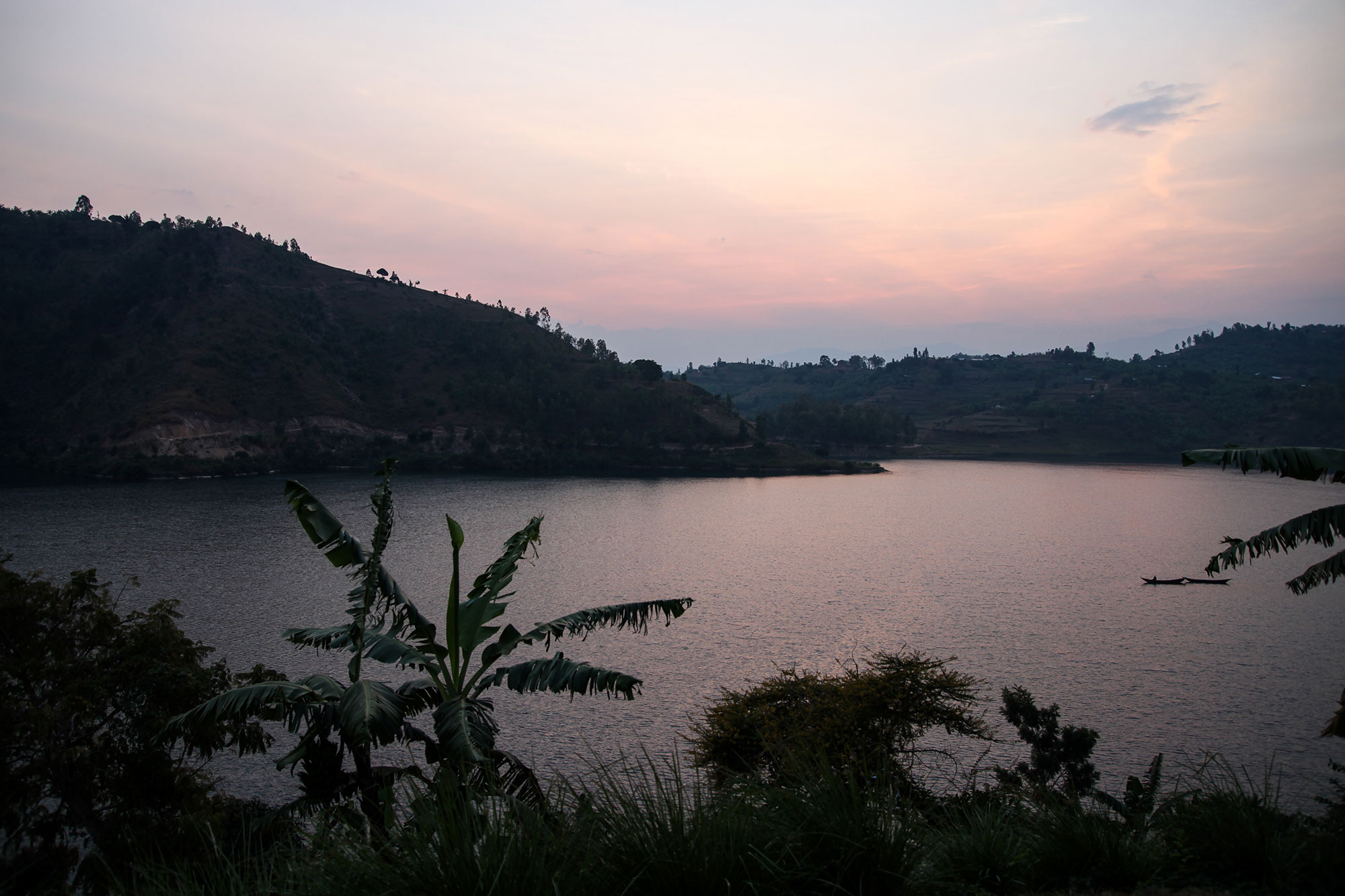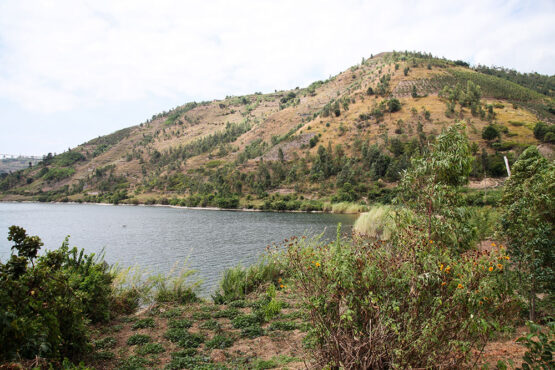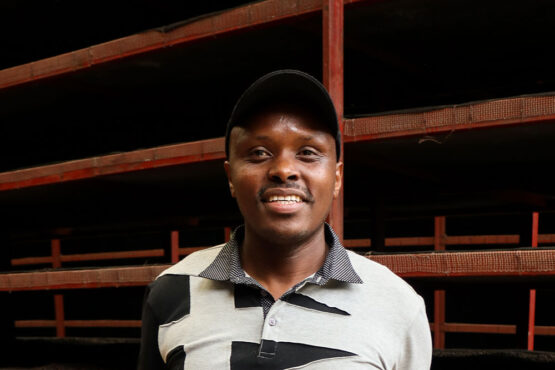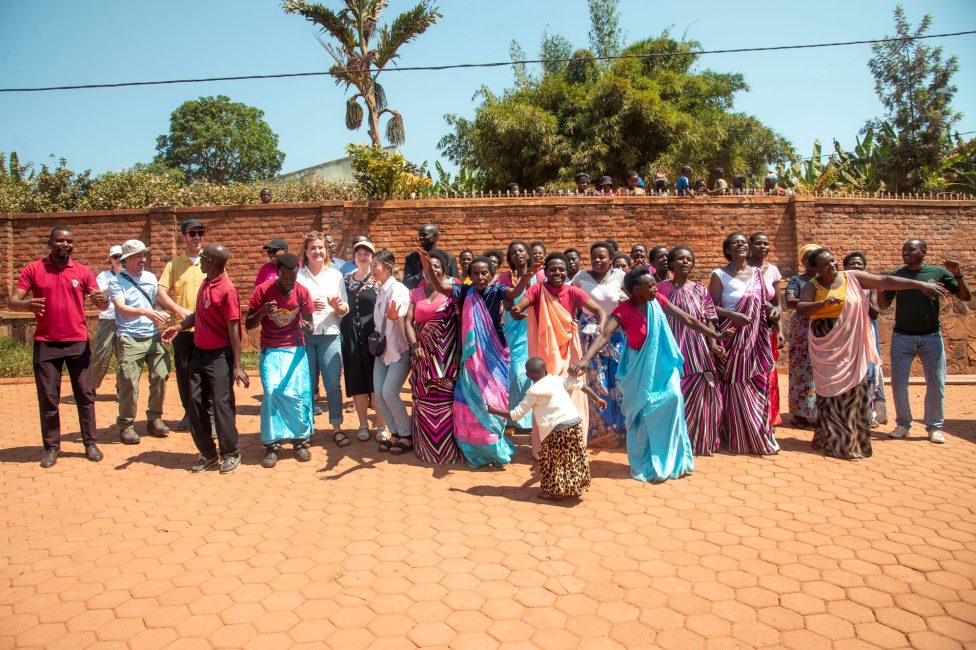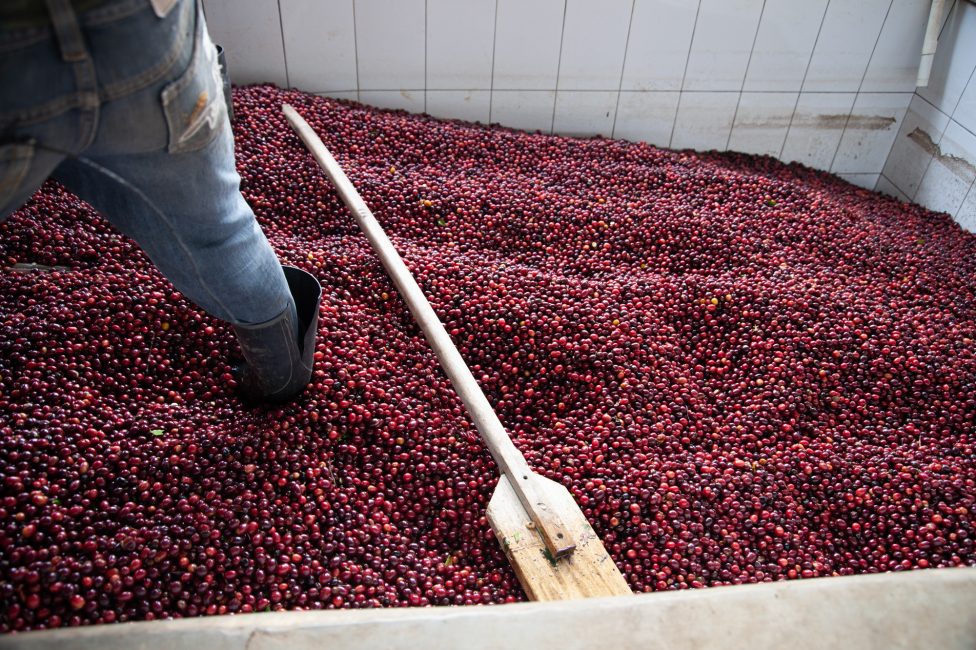Tropic Coffee
Tropic Coffee is a young and quality focused coffee company, working with coffee farming communities in Rwanda’s promising Western Province.
Tropic Coffee was established in 2105, with a focus on invigorating Rwanda’s specialty coffee industry through more transparent business practices and a commitment to increasing farmers’ incomes from coffee production. Their mission is to source the highest quality coffees at a fair price, while operating with their guiding values of transparency and sustainability. As of 2021, Tropic support some 1,500 small coffee farmers in the Western and Southern Provinces.
The family owned and operated company was founded by Divine Mutuyimane, a seasoned coffee trader and sales manager, and is managed by her husband Christophe Rugira, an agronomist. Both have worked at coffee cooperatives in the past and have many years of experience in Rwanda’s coffee industry. Their combined expertise works as a one-two punch: Chris is well-versed in techniques necessary to grow high quality coffee more productively, whilst Divine is experienced in organising sales and operations to maximise revenues. The strategy has been very successful, as they have continued to grow their business, even during a global pandemic.
Divine first gained experience in coffee trading in 2012, when she began sourcing green coffee from various producers, washing stations and cooperatives in Rwanda, and selling it into the domestic market, with only a tiny amount being exported. Realising that the revenue generated by international sales would have a greater impact on the livelihoods of the farmers she worked with, Divine founded Tropic Coffee and registered it with Rwanda’s National Agricultural Export Development Board (NAEDB). The company has gone on to establish three washing stations since then: one in Southern Province (Gisanga in Ruhango District) and two in Western Province (Cyato in Nyamasheke District, and Kabyiniro in Ngororero District).
Before Tropic established washing stations in these regions, local farmers had to travel very far to deliver their cherry, at considerable cost. Coffee farmers in Rwanda live on challenging terrain that can be difficult to access, especially in the areas near Lake Kivu in Western Province. By making their washing stations easier to reach, Tropic has made the international specialty market more accessible to the farmers they work with, helping them lower costs and increase their revenue by up to 30%. Through internal surveys, the company has found that farmers primarily use this income to reinvest in their coffee plots and farming equipment, as they aim to increase their output the following year, and to pay for education and health insurance coverage.
Although we have only recently established a relationship with Tropic Coffee, we are excited to continue to showcase their work here in Australia. We have access to this coffee through our dear friend, Sam Muhirwa, of our long-time supply partner, Buf Coffee. We have been working with Muhirwa and his mother, Epiphanie, since 2009. Up until 2014, Buf Coffee’s activities have been concentrated in the Southern Province of Rwanda, where Muhirwa’s family business is based. Over the last couple of years, Muhirwa has been fostering new relationships with producers, providing them with advice and helping them to market their coffees.
HOW COFFEE IS PROCESSED BY TROPIC COFFEE
- All of the coffee is carefully hand-picked and delivered to the washing station. It is sorted for unripe or defective cherries and pulped on the same day using a mechanical pulper.
- The beans (in parchment) are then dry-fermented (in a tank with no added water) overnight for 8–24 hours. They are then sorted again using grading channels; water is sent through the channels and the lighter (i.e. lower grade) beans are washed to the bottom, while the heavier cherries remain at the top of the channel.
- The wet coffee in parchment is then soaked in water for 20-26 hours (the water is changed every 8 hours) before being moved to pre-drying beds where they are intensively sorted for around 6 hours. This step is always done whilst the beans are still damp because the green (unripe) beans are easier to see. It is also always done in the shade to protect the beans from direct sunlight (which they have found helps to keep the parchment intact and therefore protects the beans better).
- The sorted beans are moved onto African beds in the direct sun to dry slowly over 21 days. Whilst drying (in the sheds and in the sun) the coffee is sorted carefully for defects and turned regularly to ensure the coffee dries evenly. It is also covered in the middle of the day when the sun is at its hottest.
- Once at 11–12% humidity, the coffee (still in its parchment) is stored in the washing station’s warehouse, in carefully labelled lots, until it is ready for export. The coffee is then sent to Rwanda’s capital, Kigali to be dry-milled under the watchful eye of Sam Muhirwa and his team. Here the parchment is removed, and the beans are sorted again by hand and using machinery to remove any physical defects and graded according to their screen size.
